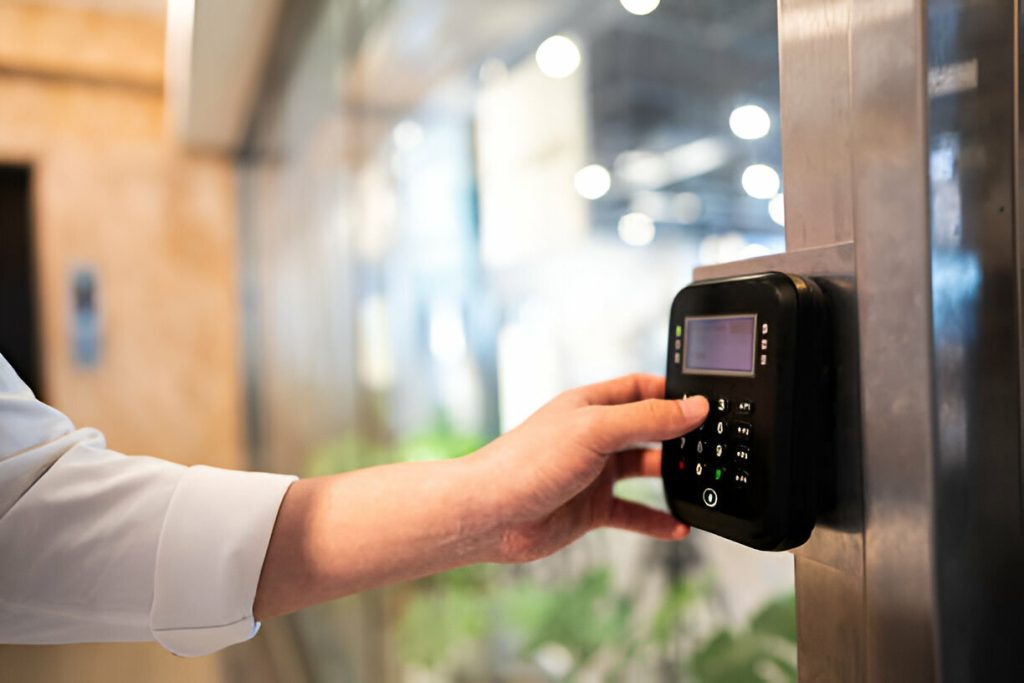Introduction
Your home is your sanctuary, and keeping it safe starts with the right lock. Choosing the most secure locks for homes is not just about preventing break-ins, it’s about ensuring peace of mind for you and your family. In today’s market, there are countless options, but not all locks are created equal. From classic deadbolts to advanced smart locks, each option comes with its own strengths. At Gokey Locksmiths LLC, we help homeowners select and install the best residential locks to match their unique security needs.
1. Deadbolt Locks (Single & Double Cylinder)
Deadbolts remain a gold standard in home lock security.
Single-cylinder deadbolts operate with a key on the outside and a thumb turn on the inside. They’re convenient but can be vulnerable if there’s glass near the door.
Double-cylinder deadbolts require a key on both sides, adding extra security—especially for doors with nearby windows. However, they can be less convenient in emergencies since you’ll need a key to exit.
Pros: Affordable, strong, widely available.
Cons: Double-cylinder models may slow exit in emergencies.
Best for: Main entry doors in residential settings.
2. Smart Locks with Encryption
Smart locks have evolved beyond simple keyless entry. Today’s models use advanced encryption, preventing hackers from intercepting the digital signal. Many also offer smartphone integration, remote access, and activity logs.
Pros: Convenient, trackable, integrates with home automation.
Cons: Dependent on batteries or Wi-Fi; higher initial cost.
Best for: Tech-savvy homeowners seeking convenience and security.
3. High-Security Keyway Locks
These locks use patented keyways that prevent unauthorized duplication. Even if someone finds or borrows your key, copying it without proper authorization is nearly impossible.
Pros: Extremely pick-resistant, bump-resistant, and duplication-controlled.
Cons: More expensive than standard locks.
Best for: Homeowners who want maximum control over key access.
4. Keyless Entry Systems
A step between traditional locks and full smart locks, keyless entry systems often use PIN codes, touchpads, or biometric readers. This eliminates the need for keys entirely and reduces the risk of lockouts.
Pros: No physical keys to lose; customizable codes for family and guests.
Cons: Requires power source; codes can be forgotten if not used regularly.
Best for: Busy households, rental properties, or families with teenagers.
5. Mortise Locks
Mortise locks are built directly into the door, offering a robust and long-lasting security solution. Their internal components are more complex than standard cylindrical locks, making them harder to pick or force open.
Pros: Highly durable, difficult to tamper with.
Cons: Requires professional installation; more expensive than standard locks.
Best for: Solid wood or metal doors, high-security residential entryways.
Factors That Define the Best Residential Locks
When choosing the best residential locks, keep these key factors in mind:
- Durability: Look for locks with solid construction and corrosion-resistant materials.
- Pick Resistance: High-security locks with complex keyways deter skilled lock pickers.
- Bump Resistance: Some criminals use bump keys to quickly open standard locks, investing in locks designed to resist this method.
- Smart Integration: If you use a smart home system, ensure your lock is compatible for added convenience and monitoring.
Tips for Maximizing Home Lock Security
Even the most secure locks for homes can underperform if not used correctly. Here are ways to maximize your security:
- Professional Installation: Poorly fitted locks are easier to force open. Always hire a qualified locksmith.
- Rekey When Moving: If you’ve moved into a new home, have the locks rekeyed immediately.
- Combine Security Measures: Use deadbolts along with smart locks or security chains for layered protection.
- Regular Maintenance: Clean and lubricate locks annually to ensure smooth operation.
- Upgrade When Needed: Security technology evolves, don’t rely on outdated locks.
Why Choose Gokey Locksmiths LLC
When it comes to protecting your home, you need more than just the right lock, you need the right locksmith. Gokey Locksmiths LLC offers:
- Expert Guidance: We help you select the best residential locks tailored to your needs and budget.
- Professional Installation: Ensuring your locks work at their maximum security potential.
- Comprehensive Services: From rekeying and repairs to installing the latest smart lock systems.
- Trusted Reputation: Known for reliability, integrity, and attention to detail.
With our experience, we make sure your home’s security is more than just a locked door, it’s peace of mind.
“Secure Your Home with Expert Lock Installation by Gokey Locksmiths LLC”
Upgrade your home’s security today with Gokey Locksmiths LLC. Whether you’re interested in a smart lock, a heavy-duty deadbolt, or a high-security keyway, our team is ready to help. Contact us now for a consultation and discover the best way to protect what matters most. We serve Salt Lake City & Riverton, UT.
FAQs
1. What is the most secure type of residential lock?
High-security keyway locks and double-cylinder deadbolts are among the most secure options, but the best choice depends on your door type and security needs.
2. Are smart locks as secure as traditional locks?
Yes, modern smart locks use strong encryption and tamper-resistant designs. However, they should be paired with traditional security measures for maximum protection.
3. How often should I replace or upgrade my locks?
Consider upgrading every 7-10 years, or sooner if your lock is damaged, outdated, or if you’ve experienced a security concern.
4. Can I install high-security locks myself?
While some locks can be DIY-installed, professional installation ensures proper fit, function, and security performance.
5. Do I need multiple types of locks for my home?
Yes, layered security (deadbolt + smart lock, for example) offers better protection than relying on one lock type alone.


